Last Updated on July 28, 2021

The
Arrow interviews Lance Mungia
Writer, Director Lance Mungia made a
name for himself via his low budget hit Six-String Samurai.
Now he tackles the fourth installment in the beloved Crow franchise;
THE CROW WICKED PRAYER
(hitting
DVD shelves on July 19 2005).
The film stars Edward Furlong, Tara “my future wife” Reid,
the great David Boreanaz and more! I had the chance to take
flight with Lance and here’s what he had to say about the making of
the picture.
The Crow City of Angels or The Crow Salvation;
which one do you prefer?
Which one did I
prefer? COA is sorta funky, isn’t it? I saw COA opening weekend in
Bakersfield when it came out. The original Crow had left a deep
impression on me but COA did not leave as deep a mark. Honestly, I
remembered visual images from COA, like Sarah’s wings, and an old
woman throwing rose pedals into the river from that low angle, but I
really didn’t reflect much on it for years until just recently when
I got the boxed set. It’s still funky and I think it holds up for
me better now than then.
Salvation. I never
saw it before I was involved with WP. Both of these films are part
of the Crow family and that makes it harder for me to say which I
prefer, as I no longer really look at them as movies but more as
cultural markers for where I was at when I saw them and where I am
now. When I saw Salvation I was knee deep in shit trying to climb
out of a bell tower with my AK, in other words already in
development hell, so I didn’t watch it clearly. I enjoyed some of
the visuals, especially last November when I digitized/ripped them
off to put into my movie. Whoever did that cool rippling Crow in
the sky we used… cool shot. What can I say, it really is a cool
shot. Y’know what, I’ll just say that I prefer both and neither.
Kind of like your sister’s kids, they are what they are, and you
have to love them because after all, they’re your family.
What was it about
The Crow Wicked Prayer project that made it for you, the ideal
follow to Six-String Samurai?
WTF is
an ideal follow up to Six String Samurai? You know, it’s funny
because time has a way of passing and you don’t even realize it. I
hadn’t seen it for many years and I sat there with Kristan Bernier,
the D.P. of
Six String
Samurai, and
watched it over beers. We laughed our asses off. That movie is
better for me now that I can see it with fresh eyes and I realize
how proud I am to have done it, and also that I should be paid
more. I just ran across some photos of shooting SSS and I look like
this obsessed kid.
I’m sort of weird
because I never know just what I will get obsessed with. I just
recently looked up at the clock and realized that The Crow: Wicked
Prayer was finally over with and after taking a moment to be baffled
at the loss of my youth, I now am wondering what my next obsession
will be and trembling with the fear it will be something that takes
as much of my time and energy as WP did. I think “Girls Gone Loco
III” will be the perfect follow up this time. Low stress, good
perks, quicker turn around.
After Six String
Samurai I wrote a few screenplays that I still haven’t sent out or
shown anyone, I’m still writing some of them on and off. I was sent
projects and still am but I don’t get obsessed over most of them,
and the ones I do get interested in, well, people can talk for years
about making movies and they don’t always get made. They should
teach classes in the art of talking. But I was also young and too
stupid back then to know that Hollywood only makes twelve 80 Million
Dollar Movies a year. Then I started making a few videos and got
hooked on the fast cars, booze and women… no not really, I wish.
When I was approached about The Crow, I liked the idea of being a
part of the legacy that the first film had created and which I
thought there was still more to explore within.
The first Crow with
Brandon Lee was burnt into my mind and that scared me because I
didn’t want to do the same sort of thing or just do a fanboy session
on the original. After it was brought up to me, I went home and I
thought about it. I popped in a dvd of Alien 2, and listened to
James Cameron talk about what it was like to take on a franchise
like Alien. He said, “If you’re going to take on a popular
franchise, you either have to top the first in exactly the same way,
or you have to spin it on it’s head and make it your own, which your
audience will hopefully appreciate.” I knew that you can’t top a
classic like the Crow head on, it is it’s own thing, but I also
thought that I could contribute something on the subject and that if
I got lucky I could bring something fresh to The Crow. I also was
ready for the fact that not everybody would be prepared for my take,
but the challenge I guess of making something new and yet familiar
out of something I personally loved is what first attracted me to
it, I think.
I liked the idea of
conflict within the characters that made them more three dimensional
than what had been done and that became the core of my interest at
the start. Whether that succeeded or not in the final film, isn’t
up to me really, now I’m just collecting my millions… but that was
what started the ball. It seemed then that the other people
involved were open to trying some new things with it, so I got
sucked in, and once I get sucked in, well, I’m stuck with it to the
end. I thought it would take six months to that end. It took over
three years from concept to apple martini. It was the roughest,
most paranoid, most creative trip I’ve yet had. I wish I was still
an obsessed kid but I’m a bit sad to say that I’ve learned so much
on this journey that I’m now an obsessed near adult/old man.
How long did it
take to flesh out the screenplay and how would you describe the
process?
The
screenplay…wow. It was a long, long, long process. I’d never dealt
with writing a screenplay in the way this was written. Right away I
wanted to bring on Jeff Most to help me write it because I felt he
had some great ideas and he was a link back to the original, because
he produced them and was involved with the first script, and I
initially was having a block at getting around the original. I’d
messed myself up by picking a project that I idolized. Jeff helped
me let some of the old baggage go and we had a lot of fun writing
the first draft together, which is the draft we sent to Eddie
Furlong and that got him involved. We wrote that in fourteen days.
We used to sit in his kitchen at three a.m., writing, acting out
scenes, trying not to wake his kids. And then other times we’d
argue for days, but it was always with the best of intentions, and I
love nothing more than a good creative argument as long as it comes
from the heart.
At first I thought
the script process would be pretty simple. But I find that as the
writing process goes on, especially in a more structured environment
like this was, people throw ideas at you from all different places
and you get varying notes about things you barely even knew existed
and you can get pulled here and there. Pretty soon, if you’re not
careful, you can get lost in the details. I think that is where
Sean Hood came in at the end, as we started pre-pro, and was very
helpful, in just trimming it down and making the script more
graspable. It still perplexes me however, how so many people can
look at page count and relate it directly to budget and time. Do
you think they budgeted correctly on that scale for “Atlanta Burns.”
in the “Gone With The Wind” Script? It can be frustrating because
as you get closer to production everyone starts to worry so much
about page count, when in reality ten pages of dialogue are very
different than a page of action. Short isn’t always better but if
it’s an easier read, (film school types who love description pay
attention) it’s an easier sell. At least in L.A. In New York, I
hear they look at you funny if it’s under a hundred and forty pages.
The way this script
came together at the end, it was very much a chess game, to figure
out where to spend the time rewriting and where to leave well enough
alone as it went draft to draft. But we were always fighting the
clock. As you go, you figure out the resources you have, and the
actors, you have to make quick adjustments. Like I said it can be
frustrating, but also fun too because it’s a good healthy challenge
and it can make things better. That happened in at least a few
cases with the script, where necessity bred something creative. But
for me the funnest part of the script process was working with the
actors in the process. Eddie Furlong was very involved with the
script from the earliest stages and we spent many a night playing
Nintendo at his pad just talking about his character and what made
it unique to us.
And luckily we got
an unheard of week of rehearsal with the actors, well at least the
primary ones, and I was able to work out a few kinks through that
creative process as well. I love how with a script each person
involved, each actor, or creative type, adds a new flavor or color
to it. I liked the energy of that a great deal when working with
Eddie, and David Boreanaz and Danny Trejo and Dave Ortiz and
Emmanuel and the rest. I think the results came through in the
subtext of their performances.
Overall, I can’t
say it was the perfect writing environment, but what is? Bottom
line, with this script, there are things that have remained the same
since the start and some things that I would have done differently
for sure, I always would have added to it, but it all came down to
figuring out how I could win the chess game, and still keep the most
pieces on the board. At some point you just hope you did enough and
all you could and you dive in, because it’s not just about u in a
room anymore. I can say that the experience of writing Wicked Prayer
taught me a great deal. I’m a better filmmaker now because of the
long, drawn out, painfully slow process of writing it.
In doing this third
sequel to The Crow; what we’re your goals? What did you want to do
different?
Is it the third
sequel? You mean there were other sequels? When? I talked about
some of this above, but I think it goes back to taking something
revered, something that I myself loved and have a great deal of
respect for, and making it my own. The Crow historically is about
revenge. I wanted to make a movie more about the process of
revenge, the winding, circular course that hatred can take on it’s
path to revenge. That’s why the villains have their own motives,
and why Jimmy is not the basic innocent guy, but a convict.
Everybody in Wicked Prayer feels like they’ve been wronged somehow,
that was very intentional. It sprang from the feelings I had after
the Columbine Shootings occurred and 911. I didn’t think of this in
a high brow way, but I liked referring to the concept that hatred
begets hatred and I felt that the previous Crow movies were very
clear cut about how they viewed good and evil, and my views were
slightly more off center to that. I thought that my take could make
for an interesting addition and change to what had been done.
My goal was to
comment on the previous films, do my own standalone, while still
homaging them in a way as a geek fan of them. I don’t know how well
I succeeded, I’m still too weary and worn down from the long ass
dramatic process of the film’s delivery. But I really thought it
was interesting to take the most unlikely hero possible, a guy that
everyone hated except his true love, and make him the savior this
town has been crying out for. I like the underdog in Furlong. I
also liked that the villains could have just as easily been ordinary
people too at one point. That they chose the path they are on for
good reason, all of them, because nobody thinks of themselves as
bad, and I’m suspicious of people that think of themselves as
righteous, and it seems there’s more and more of that these days all
around. So it seemed timely.
As a filmmaker, I
get a kick out of taking things that are very B, and making them A.
I wanted to take a bunch of B concepts like a guy rising from the
grave, Satan, Good versus Evil, and make them A, through the quality
of the script and the performances by the actors. I think because
we infused that quality in the script, it is why we attracted so
many amazing actors to the project, and it paid off, for me anyway.
The other Crow movies, and other movies about revenge in general,
you leave the viewing feeling satisfied, the bad guy got his. I
didn’t really want that. I wanted to create a more ambiguous
feeling, so that by the time Jimmy gets to his true love at the end,
you’re not so sure that she is going to be there waiting, because
there’s a feeling of unease.
Eddie at one point
wanted to end before Lily arrives, with him alone there, like we’re
not sure if he’s earned the reunion, but I knew that ultimately the
film should be about rising above our failings, that in the end we
are human and that love prevails above our wrongs and our thirst for
revenge. It was more internal than the others. I think the world
would be a lot better off if people in general felt a little bit
more uneasy about their concepts of justice and revenge anyway.
That was my jumping off point and what I wanted to discuss and
getting back to an earlier question, that’s why I decided to make
the movie in a nutshell.
Did you watch the
other films beforehand as preparation or did you avoid them?
I saw the original
Crow twice on opening weekend, and it affected me both cinematically
and on a more personal level. I really dug the notion that love
outlasts death, that the everyman has a chance to overcome, and the
visual style… well, it’s a masterpiece that I wouldn’t even try to
duplicate, which is why I decided to go with the rich look this
time, which is more my thing. I never watched COA in preparation for
the film. I think the one time I saw it beforehand after my initial
viewing years earlier, I was at Jeff Most’s house, I had been
drinking heavily and probably intentionally not trying to pay too
much attention so I didn’t mess myself up, or maybe I just didn’t
remember much due to my hangover. Salvation I had never seen until I
was already writing WP. I’m glad I didn’t see it sooner because I
think it would have affected me, held me in tighter to the feel and
locales of those films. Honestly I purposefully didn’t really pay
much attention to COA or Salvation because I knew I wanted to do
something that harkened back to the romanticism of the original.

The film is heavy
in name talent. Was it ever an option/thought during pre prod to cut
down on the name cast to put more money on the screen?
Ha Ha. That’s a
good one. I would have loved to use all unknowns and put Danny
Trejo’s twenty million dollar salary back up on the screen. I busted
ass to varying degrees of success in always arguing to create
characters that would attract actors that just normally wouldn’t be
in an installment of a franchise. And I passionately could see each
of those characters, and I fall in love with all my actors as a rule
and respect their craft with a sort of awe and envy, and I think the
actors we met with just dug both the script and the energy I was
trying to create. At least I hope that was it, and not the huge
payoffs Jeff Most was slipping them… I always tried to come at WP
from an actor’s perspective, much more so than I did on Six String
Samurai, because that to me was more of a visual sketch, while WP
was more of an actor’s movie.
I love actors and
my favorite part of the process is working with them. I know we had
a meeting early on with an actor that I didn’t think would work,
before we really had a script, and one producer I think was nervous
I wouldn’t know how to talk to actors because I was quiet at the
meeting. In reality, I just wasn’t obsessed with that actor and
didn’t see that person in the role, I needed something to spark off
of and I never found it. When I first met David B. or Eddie, it
clicked. It just felt like a reunion of friends and creative ideas
and I think it’s the strongest aspect of the film, budget
notwithstanding. But getting back to the idea of putting more money
on the screen, eh. I could have used another fifty days of
shooting, who couldn’t? But who couldn’t?
A lot of times
money can get freed up only to disappear back into a hole again.
That’s the thing that sucks about filmmaking with any sort of budget
and I’m sure anyone can tell you, it’s still a business, and you’ve
got to be responsible with other people’s money and there’s never
enough of it to go around because how do u put a budget on your
imagination? If I could have done anything to put more on the
screen, I would’ve. As it is, everyone from Fred M. Andrews, the
production designer, to Jamie Christopherson, the composer, down
through the whole cast on up and down, really put more of themselves
into the film to make it work than they would had they been paid a
basket of money. You can’t get people to devote the attention that
only their passion evokes. There was not really a whole lot that
was standard about making this film, except passion. That doesn’t
make the film better or worse, it is what it is and we’ve all moved
on by now, but it’s my perspective on it and the only way I ever
would like to do it again, if I ever do it again.
What would you say
was your most difficult obstacle to surmount during this particular
shoot?
Time. Time is a
bitch and it just keeps on coming and going. We either didn’t have
enough or we had too much. From months of development while I
squirmed in my unemployment chair, to thanking God every day that I
was blessed with actors who all clicked on take one or two, to
months and months of sitting at home waiting for somebody to call
and tell me that our distributor still existed in the real world and
that our negative hadn’t been burned in a “mysterious vault fire” or
something just as horrid. Bad timing with the whole breakup, the
whole nonsense. Either that or a good excuse. I was either
hurrying or waiting through the last few years and I wish that I was
like other directors that could hop into thirty things at once but
unfortunately my tunnel vision is all encompassing at times. I did
do other things, videos, some t.v. I wouldn’t admit to, writing, but
this film was always there and I couldn’t get over it.
Did your Six-String
Samurai experience help you in any way when it came to filming the
fight sequences in Wicked Prayer?
Yes and no. The
style of fighting in this movie is totally different than what was
done in Six String. But the way it was shot and edited on Six
String helped immensely in knowing that we only needed various
pieces to make any given scene work. I learned an incredible amount
from Jeffrey Falcon about HK techniques in editing and action
direction while doing Six String, but I didn’t want to apply those
techniques here too overdramatically, especially since there wasn’t
time to micromanage everything the way I could with a more liberal
schedule. Believe it or not I actually had a lot more time to shoot
Six String Samurai’s action.
I wanted that to be
like ballet, this on the other hand was more in your face and
simple, from the earliest I wanted the end fight to be simple blows
traded, two men, mono a mono. If we’d had a HK fight director he
would have walked off on day three because we didn’t design things
to work around a martial arts style. Actually, The Crow has never
been about martial arts and I wanted to remain true to that. It
would have been weird to see the Crow doing a flying crescent kick.
Six String was all about set pieces and this wasn’t. The action on
WP was just there to serve the characters, whereas in Six String the
action and Buddy were all the same. When making what is basically
and independent movie on both counts, you have to make hard choices
and decide where to allocate resources.
If I hadn’t figured
that out making Six String in a big way, I would have been pretty
screwed up on WP because I would have had eyes bigger than my
stomach. As it is, I got big blue eyes baby. But this time I cared
more to focus them on scenes with dialogue and character, something
I’ve always loved about movies but didn’t get to do on Six String as
much. Give me 50 Million dollars or unlimited time and we can make
the most kickass action on earth. With this, I just wanted good
actors and I was lucky enough to get them.
Fanboy question; at
the end of the film there’s a villain who is spared. Since he/she
partook in the murder of Lily and taking into account The Crow
rules, how was it that Jimmy was allowed to join her in the after
life at the end?
That is an
excellent question. Big spoiler here. From the earliest
draft, going back to the core themes that revenge is a circle and
that none of these people are pure good or pure evil, we debated
that ending alot. I thought it was too neat and clean to have Jimmy
Cuervo go up to her and just kill her/him. There were a few choices
about how to handle it but in the end it was kept simple. Deep down
I wanted Danny to blow him/her away, but I like that Tanner comes
full circle too, that he’s realized that to take that action, he is
the same as the bad guys are, and I think it’s a good subtle moment
between Dave Ortiz as Tanner and Danny Trejo there at the end when
Danny almost does it. Screw the mythology or whatever, it just
worked for me on a character level for them, which I think takes
precedent. It’s so subtle and silent though, you really have to
watch Danny’s face, and Dave’s. Just one of those things…
I’m surprised no
one has ever asked that about the mythology of The Crow and him
finishing his mission before. I think in this film, it is more about
Jimmy making peace with who he is, the violent things he’s had to
do, and getting her eyes back. That’s what was different in this
one, it wasn’t so much an act of revenge as an act of love that kept
the Crow on his mission. If it had just been revenge, well, Jimmy
Cuervo didn’t even want to come back, he didn’t want that mission,
but he did it because he had to face both his own anger and his love
of Emmanuel’s character. Yeah, it messes with the mythology a bit,
but I always sort of spaced out in that class anyway. I just hope
that it entertains at least some of the fans, I know it will never
get all of them, but there’s a whole generation of new potential
fans out there now that may not have even seen the others and I hope
they find the film somehow and that they judge it on it’s own
without giving too much weight to scripture, both in the genre and
in the franchise.
What’s next for
you? Any other projects on the horizon?
I am currently
completely development on a screenplay to direct for LucasFilm. I
am writing and directing the next three installments of the Star
Wars franchise, episodes 7, 8 and 9. Yeah, that’s the ticket. Just
kidding, actually I have a swell job at McDonalds now, and I’m
thinking of becoming a ride operator at Disneyland, just in time for
the summer rush. Okay, fine. I’m writing. I’m always writing. It
never ends. I’m writing a quirky little horror movie for Lion’s
Gate to produce and I hope to be done with my next three films in
the same amount of long ass time it took to do WP. I also opened a
small post house with some friends to edit my own stuff and do
editorial work for others, Samurai Post, which can be found at
samuraipost.com.
What was the first
drink that you consumed at the Wicked Prayer Wrap Party?
An Apple Martini of
course. Would the martini shot deserve any less? I will probably
be drinking the same at the premiere party Monday if you would care
to show up and buy me one or three. Trust me, I need at least four.
I’d
like to thank



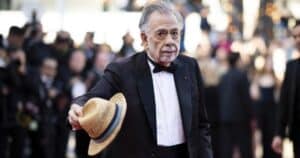



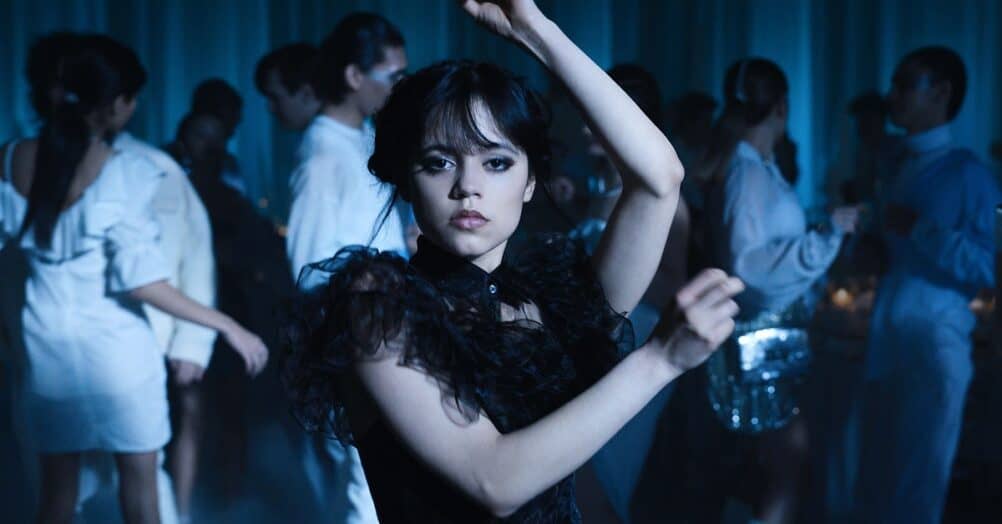





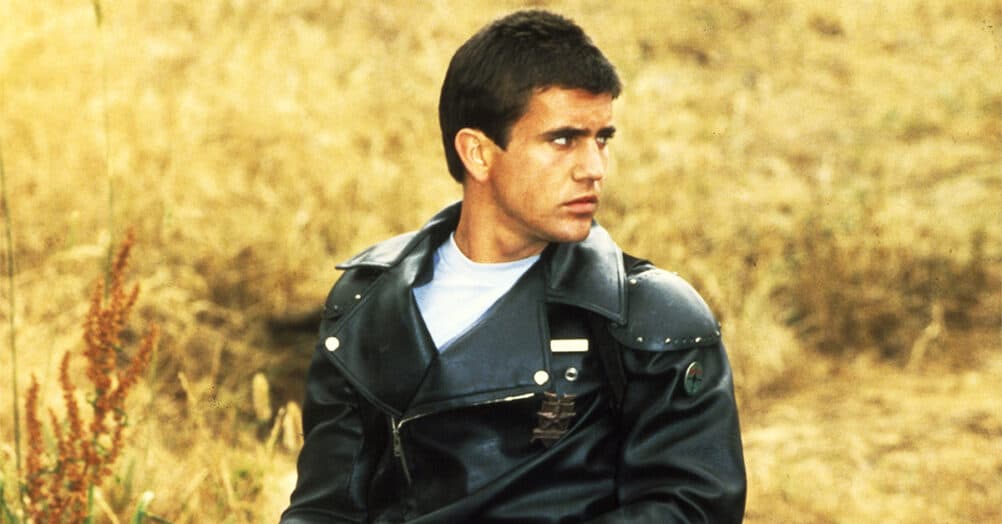
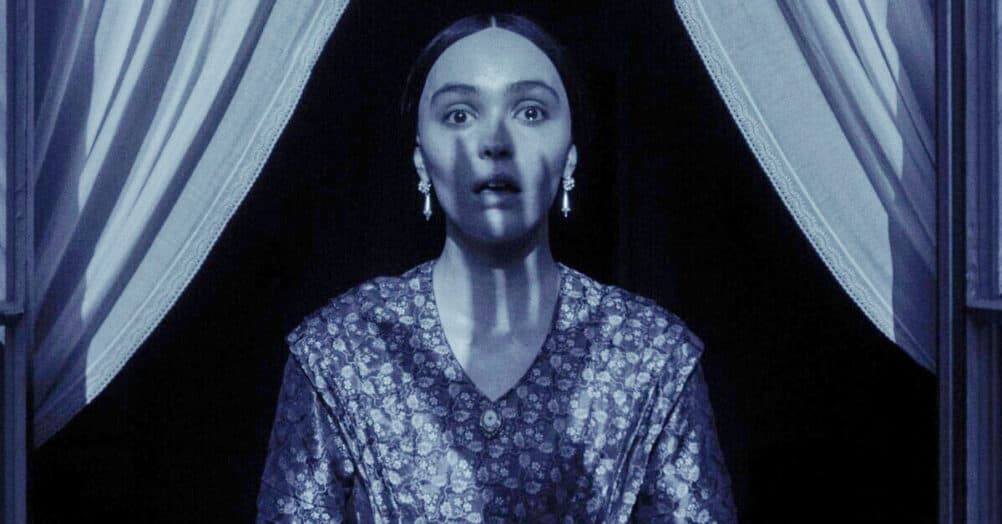
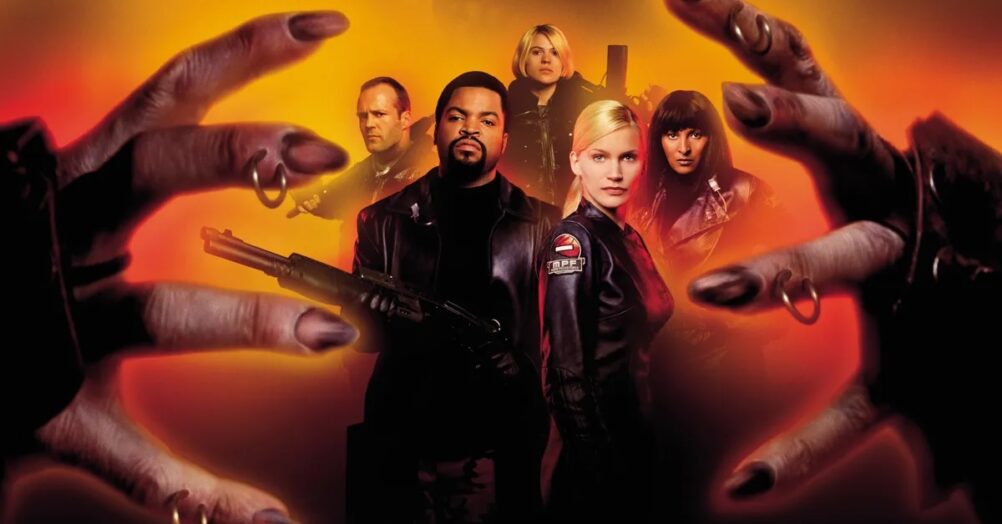
Follow the JOBLO MOVIE NETWORK
Follow us on YOUTUBE
Follow ARROW IN THE HEAD
Follow AITH on YOUTUBE